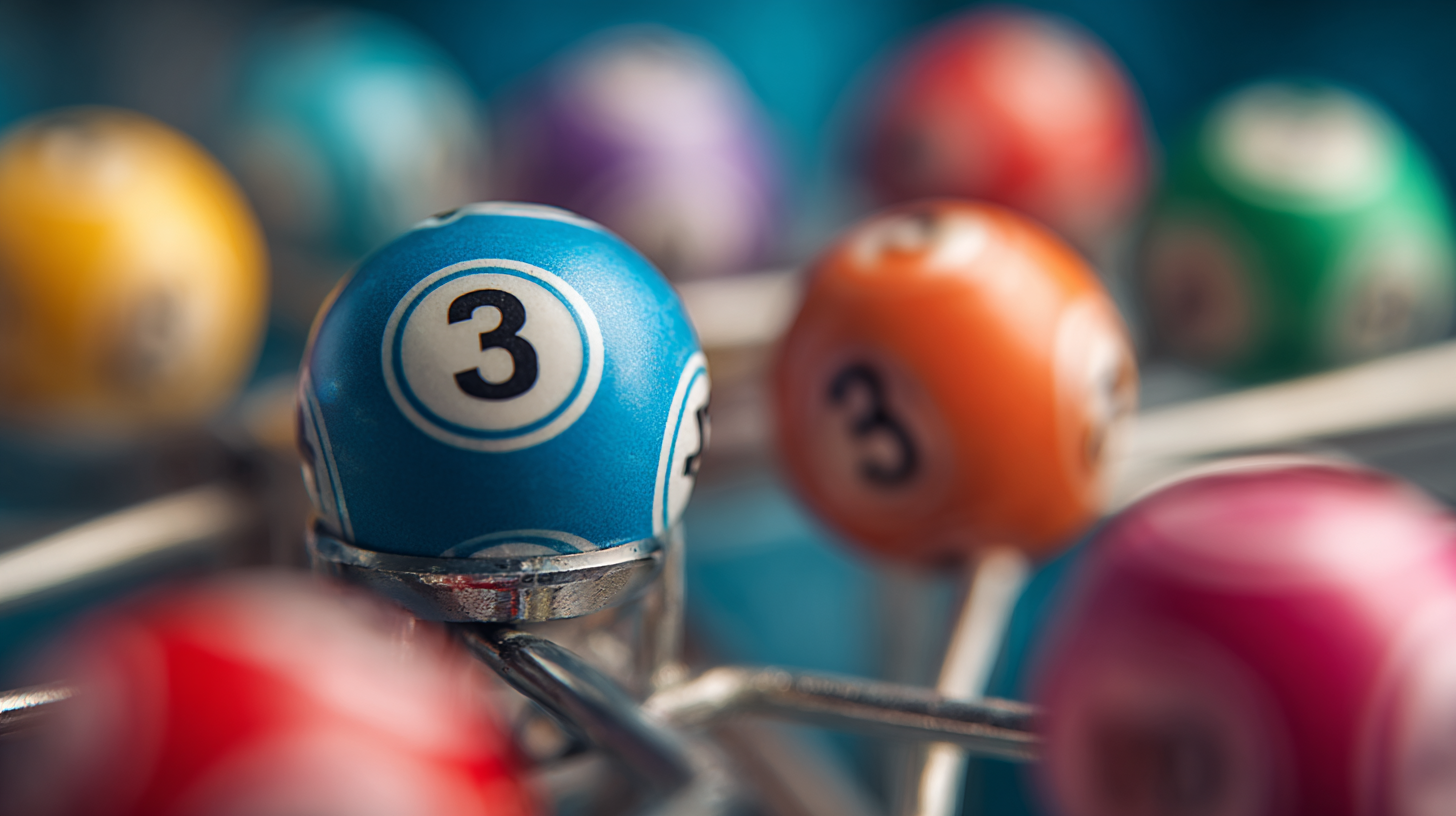10 Common Myths About Lottery Winners and the Truth Behind Them
Winning the lottery is a dream for many, but there’s no shortage of myths and misconceptions about what happens once the big prize is claimed. From the idea that lottery winners always go broke to the belief that certain numbers are luckier than others, these myths can cloud the reality of what it’s like to win the lottery. In this article, we’ll debunk ten of the most common myths surrounding lottery winners and shed light on the truth behind each one.
One of the most pervasive myths is that lottery winners go broke quickly. While it’s true that some winners have found themselves in financial trouble after their win, the idea that most lottery winners end up broke is an oversimplification. Many lottery winners handle their newfound wealth responsibly by seeking professional advice, investing wisely, and maintaining a lifestyle that’s sustainable in the long run. There are also numerous examples of winners who have maintained their wealth and used it to improve their lives and the lives of others. Like any major life event, winning the lottery requires careful financial planning and discipline, not just a windfall of money.
Another popular myth is that picking “lucky numbers” will increase your chances of winning. Whether it’s using significant dates, such as birthdays or anniversaries, or believing in certain “lucky” combinations, many players are convinced that there’s a secret to choosing the winning numbers. The truth, however, is that the lottery is a random game, and every number combination has the same chance of winning. Using “lucky” numbers may not improve your odds, and in some cases, it could even work against you. For example, if you choose numbers based on dates, you’ll be more likely to choose numbers between 1 and 31, which are commonly picked by other players. This means that in the event of a win, you could have to share the prize with more people. The reality is that there is no magic formula for choosing the right numbers—randomness is the only factor at play.
A third myth revolves around the idea that playing more often will increase your chances of winning. While buying more tickets does increase the number of combinations you can play, it doesn’t significantly improve your odds. For example, if you buy 10 tickets, your odds are still extremely low, just 10 times better than buying one ticket. However, even if you bought thousands of tickets, your odds are still very small when compared to the overall number of possible combinations. The lottery is a game of chance, and playing more doesn’t necessarily mean you’re more likely to win.
Many people also believe that lottery winners are immediately overwhelmed with calls from financial advisors, lawyers, and other professionals offering their services. While this may be true in some cases, most winners are encouraged to take their time before making any major decisions. Many lotteries even advise winners to remain anonymous or take time to process the win before making any public announcements. It’s important for winners to take their time, seek reputable advice, and ensure they have a solid financial plan before diving into any major commitments or investments.
Another myth suggests that lottery winnings lead to an easier, stress-free life. While it’s true that winning a large sum of money can alleviate financial burdens, it can also bring its own set of challenges. For example, winners may experience stress related to managing their wealth, dealing with requests for money from friends or family, or even facing public scrutiny. The pressure to “do something good” with the money can be overwhelming for some. Additionally, some winners report feelings of isolation or loneliness, as they feel disconnected from people who don’t share their experience. Winning the lottery may solve some problems, but it also creates new ones, which is why many winners seek help from professionals to navigate their newfound wealth.
There’s also the myth that lottery winners spend their money recklessly and indulge in extravagant purchases. While some winners do make lavish purchases, the majority of lottery winners make thoughtful, responsible decisions about their spending. Many use their winnings to pay off debts, buy homes, or start businesses. Others may set aside money for their children’s education, charity, or long-term investments. Although there are certainly examples of winners who have spent money quickly, studies show that most winners approach their newfound wealth with caution and a sense of responsibility.
Some people believe that winning the lottery can instantly solve all of life’s problems. While it’s true that a large amount of money can bring comfort and security, it doesn’t eliminate personal or emotional issues. Winning the lottery won’t fix relationship problems, personal insecurities, or emotional struggles. In fact, some winners have found that their relationships with family and friends have changed after winning, often leading to conflicts or misunderstandings. The emotional toll of sudden wealth can be significant, and many winners seek counseling or therapy to help them cope with the changes in their lives.
Another common myth is that lottery winners are destined to experience bad luck after their win. Some people believe that winning the lottery is a precursor to a string of misfortunes, and that winners are “cursed” by their newfound wealth. In reality, there’s no evidence to suggest that winning the lottery leads to any specific type of bad luck. While some winners may face challenges after their win, others go on to live fulfilling, successful lives. Like anyone, lottery winners can experience a range of life events, both good and bad, but their wealth doesn’t automatically determine their future happiness.
Another myth that circulates is that you can’t win the lottery unless you “believe” or “feel” lucky. Some people are convinced that their attitude or mindset plays a role in winning, and that luck can be influenced by positive thinking or specific rituals. However, winning the lottery is entirely based on chance, and no amount of belief, prayer, or superstition will affect your odds. The lottery is a random event, and while it’s fun to fantasize about being “lucky,” the truth is that luck doesn’t work that way.
Finally, there’s the myth that lottery winners should avoid telling anyone about their win. While it’s true that winners should be cautious about revealing their newfound wealth, many lotteries encourage winners to go public, or at least make a statement for the sake of transparency. That being said, winners often have the option to remain anonymous if they wish. Going public can help avoid legal issues or disputes down the road, and many winners choose to share their good fortune with others. However, it’s essential to weigh the pros and cons and decide what’s best for your situation.
12 Frequently Asked Questions About Lottery Myths
- Do most lottery winners go broke?
No, while some winners do face financial difficulties, many lottery winners manage their wealth responsibly with professional guidance. - Can you increase your chances by choosing lucky numbers?
No, the lottery is a game of chance, and every number combination has an equal chance of winning. - Does buying more tickets significantly improve your odds of winning?
While buying more tickets increases the number of combinations, it doesn’t drastically improve your chances due to the overall odds. - Are lottery winners overwhelmed with offers from professionals?
While some winners are approached, many lotteries advise winners to take their time and seek trusted, professional advice at their own pace. - Does winning the lottery make life stress-free?
Winning the lottery can solve financial problems but may also introduce new challenges and emotional stress. - Do lottery winners spend all their money recklessly?
Most winners manage their wealth responsibly and make thoughtful decisions, such as paying off debt or investing for the future. - Can winning the lottery fix all of life’s problems?
No, while it can provide financial security, it doesn’t eliminate personal or emotional struggles. - Do lottery winners experience bad luck after winning?
There’s no evidence to suggest that winning the lottery brings bad luck. Like anyone, winners experience a mix of good and bad events. - Do you have to “believe” to win the lottery?
No, winning the lottery is based entirely on chance, and positive thinking or superstition doesn’t influence your odds. - Should lottery winners tell anyone about their win?
Winners can remain anonymous if they choose, but many lotteries encourage transparency for legal and public relations reasons. - Is it true that the lottery is a curse?
There’s no truth to the myth that winning the lottery is a curse. While there may be challenges, many winners go on to live fulfilling lives. - Can you influence your chances of winning the lottery?
No, lottery chances are determined by random number generation, and there’s no way to influence or predict the outcome.



